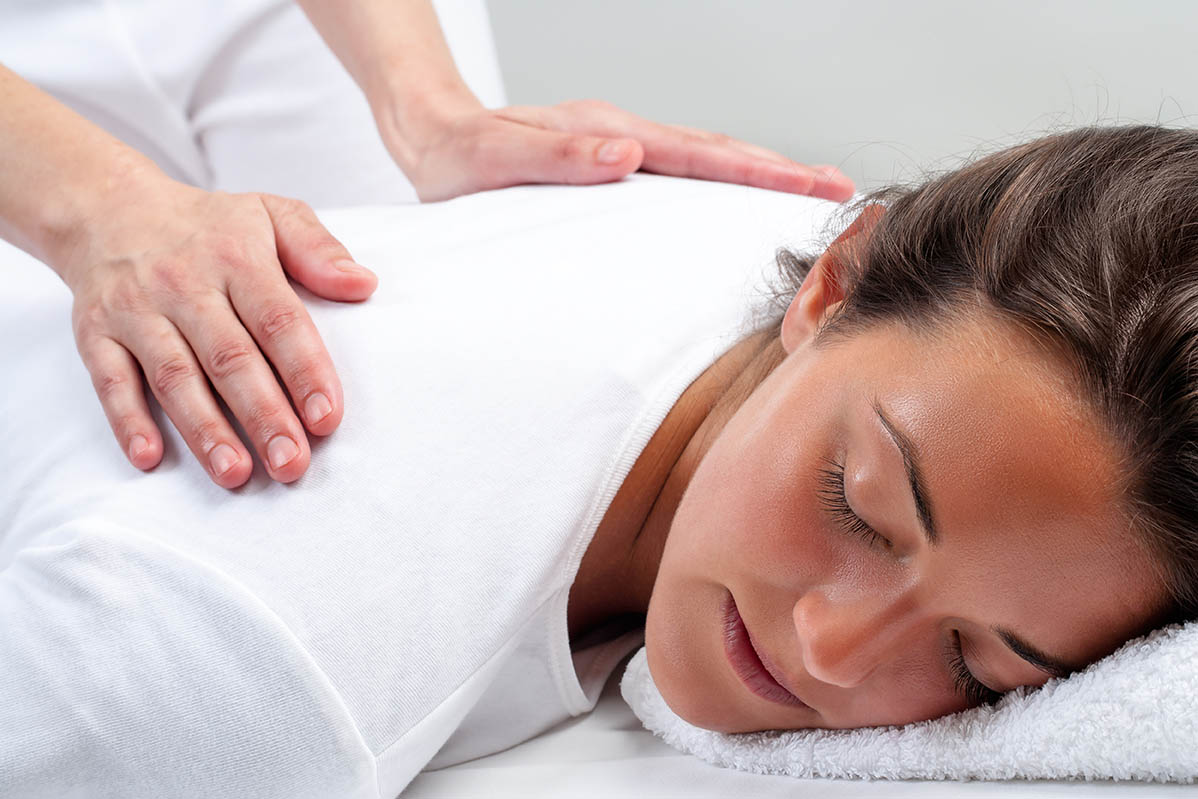CranioSacral Therapy
Using a light touch, CST releases tensions deep in the body to relieve pain and dysfunction and improve whole-body health and performance. By listening to the gentle rhythms of the cranial-sacral system, the therapist will detect disturbances identifying areas of dysfunction.
Delicate, manual techniques are applied to the whole body, including the spine and skull, its cranial sutures, diaphragms, and fascia. CranioSacral therapy is beneficial for all ages, from infants to the elderly.
Few structures have as much influence over the body’s ability to function properly as the brain and spinal cord that make up the central nervous system. And, the central nervous system is heavily influenced by the craniosacral system – the membranes and fluid that surround, protect and nourish the brain and spinal cord.
Every day your body endures stresses and strains that it must work to compensate for. Unfortunately, these changes often cause body tissues to tighten and distort the craniosacral system. These distortions can then cause tension to form around the brain and spinal cord resulting in restrictions. This can create a barrier to the healthy performance of the central nervous system, and potentially every other system it interacts with.
Fortunately, such restrictions can be detected and corrected using simple methods of touch. With a light touch, the CST practitioner uses his or her hands to evaluate the craniosacral system by gently feeling various locations of the body to test for the ease of motion and rhythm of the cerebrospinal fluid pulsing around the brain and spinal cord. Soft-touch techniques are then used to release restrictions in any tissues influencing the craniosacral system.
Health Benefits
By normalizing the environment around the brain and spinal cord and enhancing the body’s ability to self-correct, CranioSacral Therapy is able to alleviate a wide variety of dysfunctions, from chronic pain and sports injuries to stroke and neurological impairment.
- Concussion and Traumatic Brain Injury
- Migraines and Headaches
- Chronic Neck and Back Pain
- Autism
- Stress and Tension-Related Disorders
- Motor-Coordination Impairments
- Infant and Childhood Disorders
- Brain and Spinal Cord Injuries
- Chronic Fatigue
- Fibromyalgia
- TMJ Syndrome
- Scoliosis
- Central Nervous System Disorders
- Learning Disabilities
- ADD/ADHD
- Post-Traumatic Stress Disorder
- Orthopedic Problems
- And Many Other Conditions

